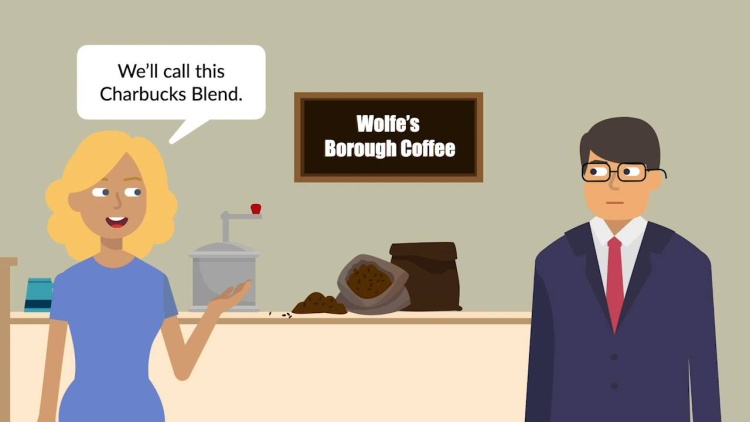Starbucks Corp. v. Wolfe’s Borough Coffee, Inc.
United States Court of Appeals for the Second Circuit
588 F.3d 97 (2009)
- Written by Emily Houde, JD
Facts
Starbucks Corp. (Starbucks) (plaintiff) was founded in 1971 in the state of Washington and sold coffee products in a variety of locations and on the Internet. Starbucks trademarked its logo and the name “Starbucks” in 1985. From 2000–2003, Starbucks spent over $136 million on advertising and marketing using these trademarks. Wolfe’s Borough Coffee, Inc. (Wolfe) (defendant) was a smaller company that also sold coffee products. Wolfe’s sales were limited to a small number of stores in the New England region. In 1997, Wolfe began selling a blend of coffee it called “Charbucks Blend” and “Mister Charbucks.” The packaging clearly identified Wolfe as the producer and stated that the coffee was roasted in New Hampshire. Shortly after discovering Wolfe’s sales of these blends, Starbucks demanded that Wolfe stop using the “Charbucks” name to sell its products. Wolfe refused. Starbucks sued Wolfe in 2001, and the district court dismissed Starbucks’s complaint because Starbucks could not show that its brand was actually diluted by Wolfe’s actions. Starbucks appealed at the same time that Congress amended the relevant law, the Trademark Dilution Revision Act of 2005 (TDRA), under which a showing of actual dilution was no longer required. The case was remanded back to the lower court, and the district court again dismissed the complaint in Wolfe’s favor because it found that there was no substantial similarity between the two trademarks. Starbucks appealed that decision.
Rule of Law
Issue
Holding and Reasoning (Miner, J.)
What to do next…
Here's why 904,000 law students have relied on our case briefs:
- Written by law professors and practitioners, not other law students. 47,100 briefs, keyed to 995 casebooks. Top-notch customer support.
- The right amount of information, includes the facts, issues, rule of law, holding and reasoning, and any concurrences and dissents.
- Access in your classes, works on your mobile and tablet. Massive library of related video lessons and high quality multiple-choice questions.
- Easy to use, uniform format for every case brief. Written in plain English, not in legalese. Our briefs summarize and simplify; they don’t just repeat the court’s language.





